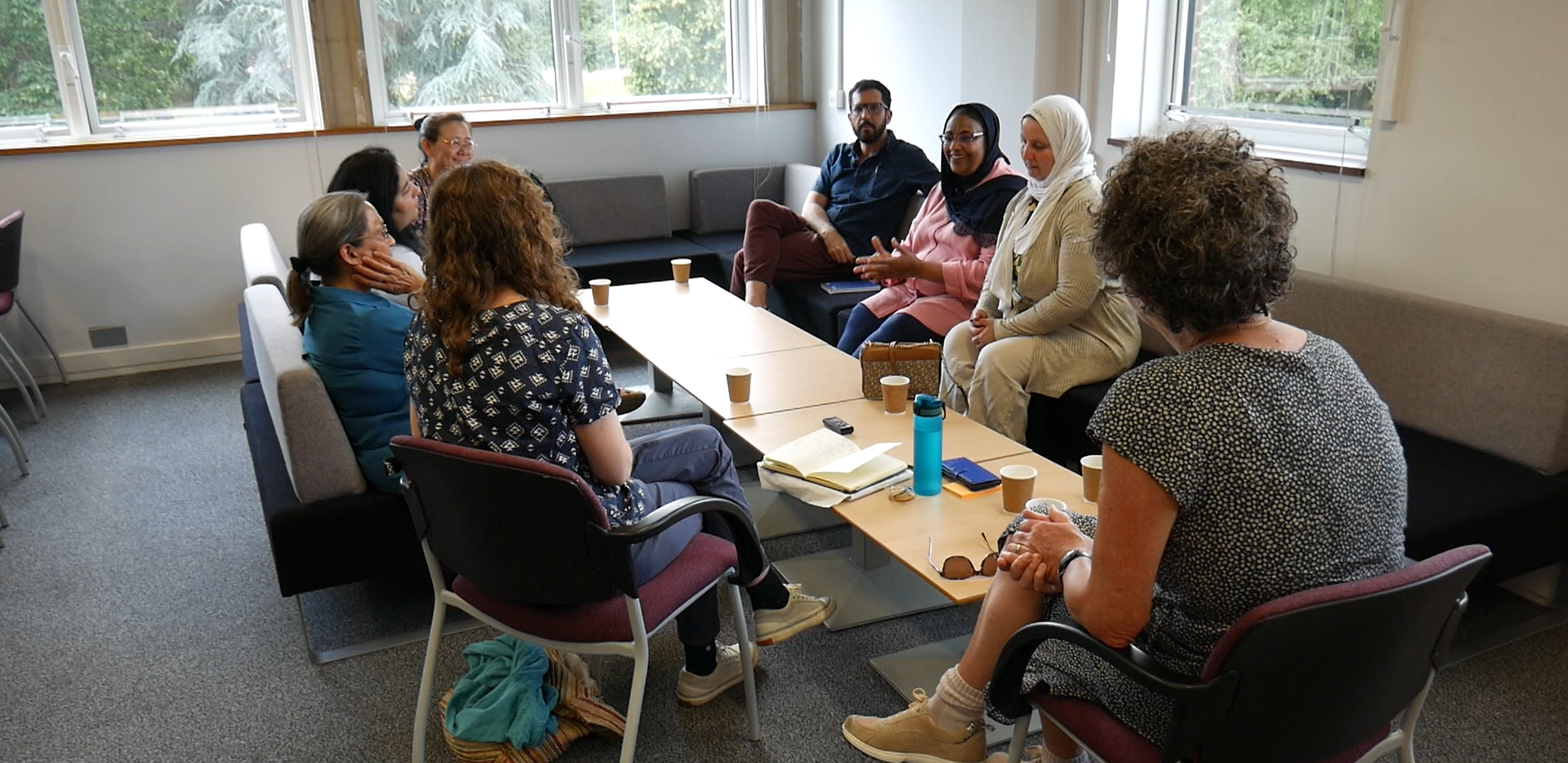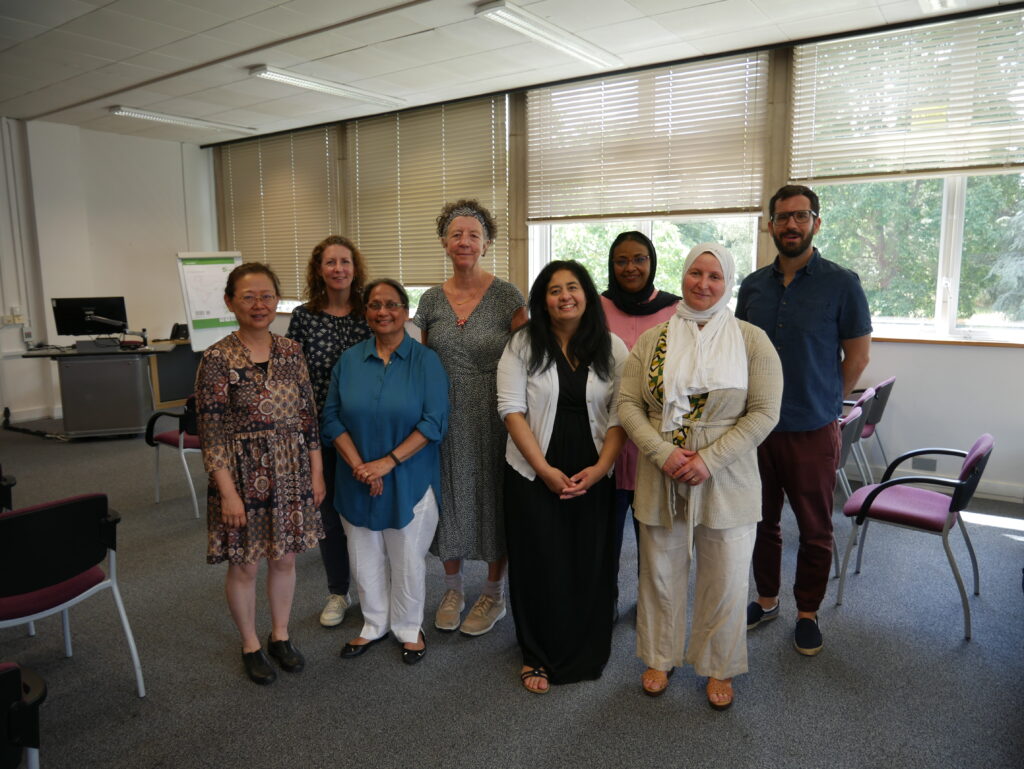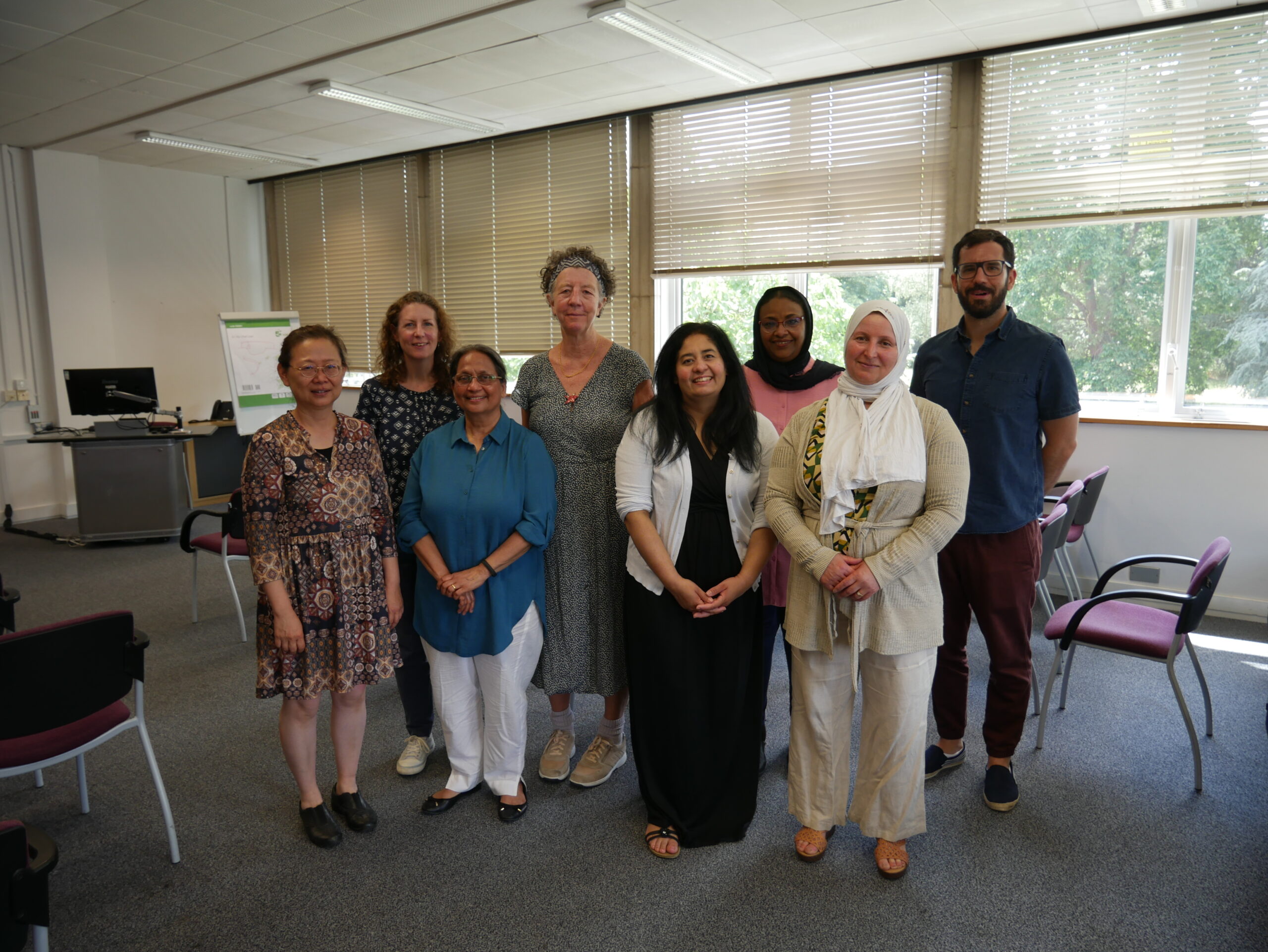Community researchers have been central to the participatory approach undertaken in the Transnational Families in Europe: Care, Inequalities and Wellbeing research project, led by Ruth Evans, University of Reading and Rosa Mas Giralt, University of Leeds. As part of Refugee Week 2023 and the University’s work towards the University of Sanctuary Award, we held a celebration lunch to thank the community researchers based in Reading for their highly engaging, sensitive and emotionally demanding work in recruiting and interviewing three generations of migrant transnational families in Reading and family members living in other countries.

At the celebration event, community researchers in Reading and practitioners supporting them from Reading Community Learning Centre and Refugee Support Group shared their reflections on the research process and the difficult situations they found among the families they interviewed. The community researchers commented on how much they valued the support provided by each other and the research team and how enriching they found the cross-cultural discussions when we met together to share our experiences. One community researcher commented:
“Listening to people’s life stories- their ups and downs and how they overcame different challenges and to become a part of their life for a short time was very rewarding. This for me confirmed faith in human ability and integrity to manage their own lives. I found this project very stimulating. Interviewing people from different age group and using skills to pitch the questions at their level and probe if necessary whilst totally respecting their views and thoughts has been invigorating”.
Alongside learning from the families and each other, they felt they had developed their qualitative interviewing skills and awareness of ethical issues and improved their digital technology and translation skills. We also discussed the challenges, such as gaining the trust of migrant family members, particularly among transnational family members living in other countries, as one community researcher explained:
“My invitations were turned down by many families because of censorship and lack of freedom of speech in some countries or areas”.
The interviews undertaken by community researchers with families from similar cultural backgrounds in their preferred language provide in-depth insights that could not have been achieved if the academic research team had undertaken the interviews with a translator, missing out on the insights provided by a shared cultural understanding. As a community researcher summarised:
“Using their local knowledge and their connection with their own community, community researchers are able to identify appropriate families to interview. This can be valuable. Also, I think living and working in the same community helps to build trust between families and the community researcher and perhaps this enabled all the interviewees to speak openly and honestly about their lives during the interview process”.
The academic research team in the UK, and in the other study countries, have learned so much from the community researchers about doing this kind of participatory research with migrant families and the financial and emotional support and structures that are needed to facilitate this role.

The Transnational Families in Europe research project is comparing migrant transnational families’ experiences within four study countries with contrasting welfare models, migration regimes and post-colonial legacies. Using a family-focused participatory action research methodology, we worked with partner organisations to train and support migrant peer researchers to undertake research with families, building trust and capacity within communities. Across the four countries, we recruited over 100 transnational families of different ethnicities and varying legal status. In the UK, community researchers were based in Reading, Leeds and Manchester. In most families, community researchers engaged with three different generations, including members living in countries of origin/other countries to explore their views and perspectives on caring for each other, barriers and inequalities they face in accessing support and services and impacts on their wellbeing.
Community feedback workshops with family members and practitioners are planned for Autumn 2023 and the final report and other outputs will be disseminated in 2024.
For more information, please contact: Ruth Evans, r.evans@reading.ac.uk.

